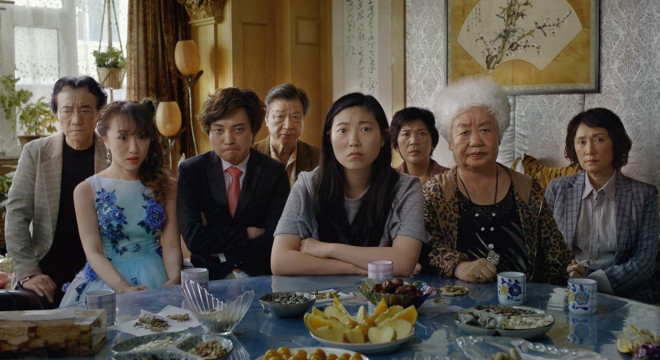The Farewell leaves audience uplifted and inspired
Quirky and entertaining, The Farewell is the new film from acclaimed Chinese-American director Lulu Wang.
Based on writer-director Wang’s own ‘stranger-than-fiction’ true family story, The Farewell deals with the effects of a cancer diagnosis on a family with its feet in two camps.
After emigrating 25 years before, one side of the family lives in New York, while the other remains in Changchun in mainland China.
Although terminal cancer is a heavy topic, the part of Nai Nai (Grandma – played by Zhao Shuzhen), is so well delivered, the audience cannot help but feel a close empathy with the character, and this bond pervades the entire film.
Some of this closeness also stems from the main premise of the film – which is that it is actually based on a good (or white) lie.
Such is the difference between Chinese and Western culture, that according to Wang, when an old person in China develops a life-threatening disease it is often customary for their family not to tell them.
Such is the case in The Farewell, when Nai Nai is diagnosed with Stage Four lung cancer and given just three-months to live.
Instead of the truth, the family asks the doctors to tell Nai Nai she has only ‘benign shadows’ on her lungs.
When Nai Nai’s granddaughter Billi (Awkwafina – Crazy Rich Asians, Ocean’s 8) – a single, 20-something living in Brooklyn who remains close to her grandmother, despite the long-distance – hears about the diagnosis, she is shocked.
Billi’s parents (played by the excellent Diana Lin and Tzi Ma) though are determined their daughter will not tell Nai Nai about the cancer, and forbid her to go to China, citing Billi as ‘too emotional’ to keep a secret.
In order to gather the rest of the family in Changchen and not give the secret away, a wedding is orchestrated between Billi’s cousin Hao Hao (Han Chen) and his Japanese girlfriend Aiko (Aoi Mizuhara).
Billi though is so distraught she secretly buys a ticket and flies to China, arriving unexpectedly at the family apartment while everyone is in the middle of dinner; and much to the chagrin of her mother.
The rest of the film is an exploration of the feelings and emotions that a terminal disease can bring about in the affected family members.
Fortunately, it is not all grief, and there is an uplifting and inspiring side to The Farewell that makes it compulsive viewing.
Rather than being morbid, and dwelling on the dark aspects of a terminal illness, this film is positive and enriching, leaving the audience with the feeling that even in the most difficult of times, hope and laughter can shine through.
Without giving too much away, the film’s ending is also testament to this.
The Farewell received Best Film and Best Screenplay at the Sundance Film Festival, with Wang also being voted Best Director.
It is showing at Luna Leederville, Luna on SX and the Windsor Cinema, Nedlands from Saturday, August 31.

By Mike Peeters
